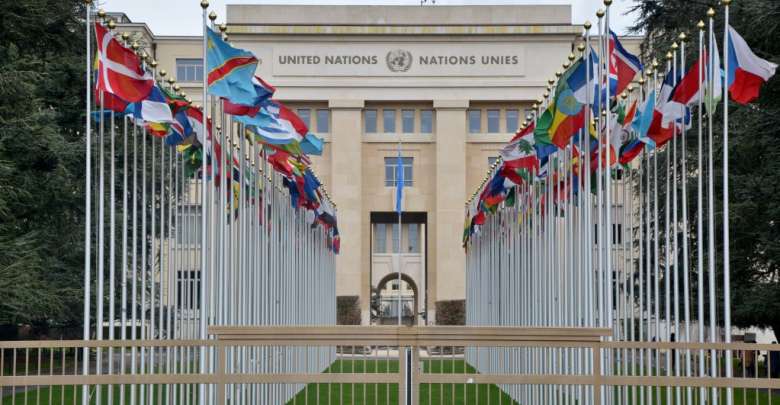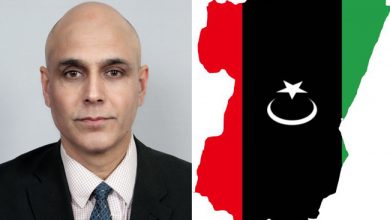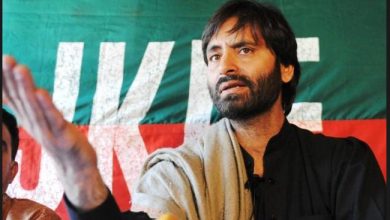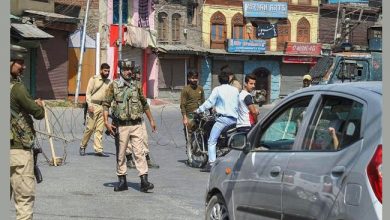Torture is a universal sin and a crime against humanity

Dr. Ghulam Nabi Fai
Chairman World Forum for Peace and Justice
November 9, 2023
The Committee against Torture opened its seventy-eighth session in Geneva on October 30 and will continue until November 24, 2023. The body of 10 independent experts is headed by Dr. Claude Heller of Mexico. The Committee will examine the implementation of the ‘Convention against Torture and Other Cruel, Inhuman or Degrading Treatment or Punishment’ by its States parties.
It is worth mentioning here that the Convention against ‘Torture and Other Cruel, Inhuman or Degrading Treatment or Punishment’ was adopted on December 10, 1984. It entered into force on June 26, 1987. Article 1, of the Convention reads, “For the purposes of this Convention, the term “torture” means any act by which severe pain or suffering, whether physical or mental, is intentionally inflicted on a person for such purposes as obtaining from him or a third person information or a confession, punishing him for an act he or a third person has committed or is suspected of having committed, or intimidating or coercing him or a third person, or for any reason based on discrimination of any kind, when such pain or suffering is inflicted by or at the instigation of or with the consent or acquiescence of a public official or other person acting in an official capacity.”
Dr. Alice Jill Edwards (Australia), United Nations Special Rapporteur on Torture told the United Nations Third Committee, “There is a persistent accountability gap for torture and ill treatment worldwide, caused in part by the systemic denial, deliberate obstruction and purposeful evasion of responsibility by public authorities.” She added, “when a State fails to defend truth and justice, it becomes an accomplice in torture. Some States wrongly perceive criminal investigations into torture as a direct attack on their legitimacy. On the contrary, what threatens governmental legitimacy is impunity.”
Human Rights Watch (HRW) talks about torture in these words, “The prohibition against torture is a bedrock principle of international law. Torture, as well as cruel, inhuman or degrading treatment, is banned at all times, in all places, including in times of war. No national emergency, however dire, ever justifies its use.”
So, Torture is a universal sin and a crime against humanity. Torture with impunity, nonetheless, is widespread in the disputed territory of Kashmir. The abuses are so extensive as to extend beyond those directly affected, reaching every man, women, and child in the Valley of Kashmir. The civilians live under the constant threat of abuse. The overwhelming presence of 900,000 Indian military and paramilitary forces serves as a constant reminder to Kashmiris that they are not free people, but a people subjugated and enslaved against their will.
India has authorized a police state reminiscent of the Gestapo in Kashmir. The Jammu and Kashmir Public Safety Act, The Armed Forces Special Powers Act, The Disturbed Areas Act, The Unlawful Activities Prevention Act are illustrative. Generally speaking, these laws empower the Indian military and paramilitary forces in Kashmir to arrest, detain, torture, search, wiretap, tr, and punish without material restraints.”
Tens of thousands of Indian officials are guilty of war crime in Kashmir. These crimes include willful killing, torture, rape, wanton destruction of civilian properties and maiming of innocent civilians. These brutalities are commonplace in Kashmir and have been verified by numerous impartial human rights NGOs.
Ms. Arundhati Roy, an internationally acclaimed novelists of India wrote, “The documentation of instances of torture, disappearances, custodial deaths, rape and gang-rape (by security forces in Kashmir) is enough to make your blood run cold. The fact that despite all this India retains its reputation as a legitimate democracy in the international community and amongst its own middle class is a triumph.”
Dr. Juan E. Mendez, Former United Nations Special Rapporteur on Torture and Professor of Human rights Law in Residence at American University, Washington, Dc wrote about the ‘Torture Report on Kashmir’, “Hopefully, a serious debate among the Indian public about this report will prompt the national authorities to take the matter of torture seriously and establish effective control and to act as a more responsible global citizen and cooperate with the human rights machinery at the United Nations.”
Aljazeera reported that “Human Rights bodies say India uses torture as ‘instrument of control’ to quash rebellion in Indian-administered Kashmir.”
Amnesty International reported, “The Indian government must take urgent steps for the protection of the people of Kashmir…Indian government’s historical failure to protect the people of Kashmir will keep feeding into this never-ending cycle of abuses and impunity.”
The United States, Department of States, 2022 Country Report on Human Rights Practices in India says, “According to human rights NGOs, police used torture, other mistreatment, and arbitrary detention to obtain forced or false confessions.”
It is gravely sinful for any nation to remain silent or passive over frightful human rights violations anywhere in the world, including Kashmir.
Edmund Burke wrote that all that is necessary for the triumph of evil is for good men and women to do nothing. Bishop Desmond Tutu lectured that “Apathy in the face of systematic human rights violations is immoral. One neither support justice and freedom or one supports injustice and bondage.”
Let me also tell you that even in today’s violent world, the behavior of the Indian occupation regime in Kashmir is singular in so far as it has enjoyed total impunity from restraint imposed through international action or persuasions. No word of disapproval, much less condemnation, has been uttered by the international community. There has not been a call on India to cease and desist from the murderous course it has chosen for itself in Kashmir. Such passivity, such unfeeling and indifference, let no one blame the Kashmiris for concluding, amounts to encouragement of tyranny.
Does anyone seriously believe that if the ICC statue were ratified by India, a single Indian soldier or civilian official would ever be prosecuted before the ICC? Of course, NOT. India has sneered at international law for decades, and the international community has yawned, whether the violations were in Kashmir or with minorities within India. Although not contrary to international law, India showed itself utterly contemptuous of international moral sentiments. It stands proudly outside the mainstream of international conventions.
And the Biden Administration would do nothing to call India to account. The United Nations Security Council has sat on its hands for over 76 years over Kashmir. President Biden stood mute when he met Prime Minister Modi at the White House on June 22, 2023, and then at G20 meeting on September 9, 2023, in New Delhi, India. He never paid any attention to the warning of Dr. Gregory Stanton, Chairman, Genocide watch who said that Kashmir was at the brink of genocide and New York-based Committee to Protect Journalists that the news media in Kashmir was at the brink of extinction. I still believe that President Biden will tell Prime Minister Modi to lead with the power of example and NOT the example of power to resolve the Kashmir conflict for the sake of international peace and security.
Dr. Fai can be reached at: WhatsApp: 1-202-607-6435. Or gnfai2003@yahoo.com





